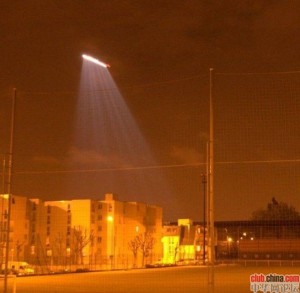With almost all major news papers having had displayed headlines of China’s growing UFO sightings in the recent months, this article by the Financial Times brings about a different perspective as to what is hovering over the Chinese skies.
According to the FT, China has opened up their low-altitude airspace for private aircraft. Meaning those who own their private planes, jets or helicopters can apply weeks in advanced for a flying permit. Of course, those who work outside the main cities and commute on a daily or weekly basis find it tedious to apply every time they want to fly. So what are the rich to do? Fly anyways and hope that the Chinese authorities don’t catch them.
If this is the case, could these actions explain the low level “UFOs” that have recently plagued China?
Full source: Financial Times
2 commentsNews that China is opening its low-altitude airspace to private helicopters and planes is a boost for international and Chinese aircraft-manfacturers. It should also address another pressing problem facing the Chinese authorities – the big increase in UFO sightings being reported across the country.
Although aviation officials don’t publish figures on UFO sightings, they say there’s been a huge spike in such reports in the last few years. But rather than setting up a Chinese X-Files unit to investigate the paranormal, the authorities have come up with a more mundane explanation: wealthy commuters.
It seems that China’s new super-rich have developed a penchant for flying in their own newly-bought helicopters and small airplanes – thereby avoiding the chronic delays and terrible service on commercial airlines, while gaining an impressive status symbol.
The difficulty is that all private flights must first be approved by military and civil aviation authorities, a process that can take weeks or even longer. For wealthy businessmen who live or work outside major cities (where their light planes and helicopters are liable to get shot down), the temptation to flaunt the rules is just too great.
So, the nouveaux riches don’t let their helicopters rust in the hangar while they wait for approval. Instead, they take to the skies without permission, spooking the locals and air-traffic controllers who spot these unidentified flying objects on their radar screens.
Such rule-bending is not uncommon in China – indeed, throughout the economy, it has allowed businesses to outgrow the bureaucratic thicket. Yet, when in comes to air travel, non-compliance poses serious safety risks. And that has helped prompt Beijing finally to rethink its tight military control over most of the country’s airspace.





